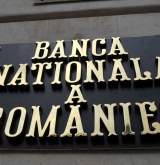In the first four months of 2009 the local M&A market has moved on ice, with an acute lack of corporate deals. Market specialists are not optimistic as to when will the market heat up the ice-cold environment, as long as the uncertainty sentiment makes forecasts difficult.
The revival of the market is conditioned both by the recovery of economic and financial climate as well as the resumption of corporate financing.
“We are witnessing a vicious circle: the deterioration of the economy triggers severe problems in the banking system that is not willing to ease lending on low visibility regarding the performance of portfolios and provision. The lack of lending, the primary driver of the economic growth over the past few years in Romania, will generate a even more acute deterioration of the economy in view of sluggish demand”, said Matei Filipidescu (photo), associate of Raiffeisen Investment Austria.
The majority of the analysts laid their odds on a recovery starting the second half of the year, he continued, due to the economic climate, lending and reduction of the gap between asking price and buyers’ price, but also due to deeper distress affecting companies, which will drive many of them in the hunt for exit solutions by drawing an investment fund.
The factors that will set the Romanian M&A market in motion are first of all the improvement of the international, regional, fiscal economic climate coupled with prompt fiscal and political decisions.
“In other words, the improvement of medium-term perspectives, the real convergence should in fact provide the “green shots of recovery” on a long term. We are all betting on an enhanced activity in deals involving distressed-asset vendors. We can say these are good businesses, with healthy performances damaged by over-indebtedness, but not all of them will survive”, Filipidescu continued.
Many Romanian entrepreneurs don’t have the experience of a crisis and no player is willing to mark loss. “We are already seeing deferred payments and debt restructurings but in certain cases it only delays the inevitable”, Raiffeisen specialist continued.
Citeste si:
Calculator Salariu: Află câți bani primești în mână în funcție de salariul brut »
Te-ar putea interesa și:


















































































![HR [PLAY] Tech Workout - 11...](https://www.wall-street.ro/image_thumbs/thumbs/973/973fe0a3888d417feff63de42e814180-260x260-00-65.jpg?v=1714053403)









